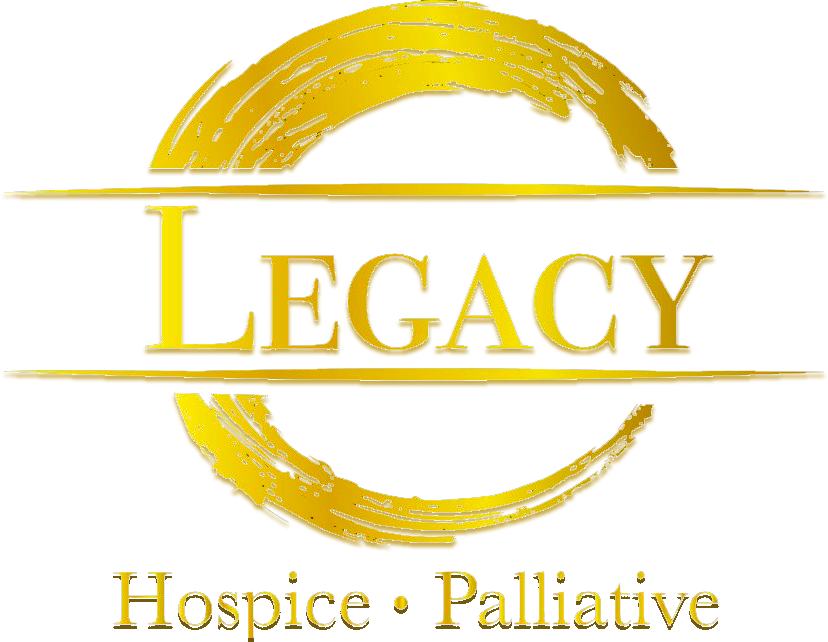Frequently Asked Questions
What does the legacy hospice symbol mean?
The legacy hospice symbol represents compassion, support, and a commitment to enhancing the quality of life for individuals facing serious illnesses. It embodies our dedication to providing holistic care for patients and their families during challenging times.
What is legacy work in palliative care?
Legacy work in palliative care involves helping patients articulate their values, memories, and messages to loved ones, empowering them to create a lasting impact and find peace during their illness. This process fosters connection and supports emotional well-being.
What is a purposeful legacy hospice care?
A purposeful legacy hospice care is a specialized approach that focuses on providing compassionate support and comfort for individuals with serious illnesses, emphasizing quality of life and meaningful moments for both patients and their families during challenging times.
What is legacy work in hospice?
Legacy work in hospice refers to the process of helping patients create lasting memories or messages for their loved ones, ensuring their life stories and values are honored and remembered after their passing.
What is legacy palliative care?
Legacy palliative care is a specialized approach that focuses on providing comprehensive medical support for individuals with serious illnesses. It aims to alleviate symptoms and improve the overall quality of life for patients and their families.
What services does Legacy Hospice provide?
Legacy Hospice provides a range of services including palliative care, symptom management, emotional support, and assistance with end-of-life planning, ensuring comprehensive support for patients and their families facing serious illnesses.
How is hospice work different from palliative care?
Hospice work is different from palliative care in that hospice is specifically for patients in the final stages of life, focusing on comfort without curative intent, while palliative care can be provided at any stage of a serious illness alongside curative treatments.
What are the qualifications for hospice care providers?
The qualifications for hospice care providers include specialized training in palliative care, valid medical licenses, and experience in managing serious illnesses. They typically consist of a multidisciplinary team, including physicians, nurses, social workers, and chaplains, dedicated to patient-centered care.
How does Legacy Hospice support families?
Legacy Hospice supports families by offering comprehensive resources, emotional guidance, and specialized care tailored to each member's needs. This holistic approach aims to ease the burden of serious illnesses, fostering a supportive environment for both patients and their loved ones.
What defines a purposeful legacy in care?
A purposeful legacy in care is defined by the compassionate support and holistic approach provided to individuals facing serious illnesses, focusing on enhancing quality of life for patients and their families while honoring their values and wishes.
What is the role of nurses in hospice?
The role of nurses in hospice is to provide specialized medical care, manage symptoms, and offer emotional support to patients and their families. They ensure comfort and dignity during end-of-life care while coordinating with a multidisciplinary team for comprehensive support.
What types of therapies are offered at Legacy Hospice?
The types of therapies offered at Legacy Hospice include pain management, emotional support, physical therapy, and spiritual care, all designed to enhance the quality of life for patients facing serious illnesses and to support their families.
How can families participate in hospice care?
Families can participate in hospice care by being actively involved in the care planning, providing companionship, and supporting their loved one's emotional and physical needs. They can also communicate closely with the hospice team to ensure the best possible care.
What training is needed for Legacy Hospice staff?
The training required for Legacy Hospice staff includes specialized courses in palliative care, symptom management, communication skills, and support strategies for patients and families dealing with serious illnesses. Continuous education and hands-on training are also emphasized to ensure high-quality care.
What does compassionate care mean in hospice?
Compassionate care in hospice means providing empathetic, supportive, and respectful treatment that addresses the physical, emotional, and spiritual needs of patients facing life-limiting illnesses, ensuring comfort and dignity for both patients and their families.
How is legacy work assessed in palliative care?
The assessment of legacy work in palliative care involves evaluating a patient's emotional and psychological needs related to their life experiences and values. This process is tailored to help individuals reflect on their legacy, fostering meaningful conversations with loved ones.
What resources are available for hospice caregivers?
Resources available for hospice caregivers include training programs, support groups, and access to respite care services, as well as informational materials on managing stress and understanding patient needs. These resources are essential for providing quality care and personal well-being.
How do patients benefit from palliative care?
The benefits of palliative care for patients include improved quality of life, relief from symptoms, and emotional support. This specialized care addresses physical, emotional, and spiritual needs, helping patients manage their illness while enhancing their overall well-being.
What role do volunteers play in hospice services?
The role of volunteers in hospice services is vital. They provide companionship, support, and practical assistance to patients and their families, enhancing the quality of care and helping to ease the emotional burden during challenging times.
What are common myths about hospice care?
Common myths about hospice care include the belief that it's only for the dying, that it hastens death, and that it equates to giving up on treatment. In reality, hospice supports quality of life through compassionate care at any illness stage.
How does Legacy Hospice ensure comfort for patients?
Legacy Hospice ensures comfort for patients through personalized care plans, compassionate support from skilled professionals, and holistic approaches that address physical, emotional, and spiritual needs. This dedicated attention helps enhance quality of life during serious illness.
What philosophies guide Legacy Hospice practices?
The philosophies that guide Legacy Hospice practices center on compassion, dignity, and holistic care. We prioritize easing suffering, valuing each person's unique experience, and supporting both patients and families throughout their journey with serious illness.
How to evaluate hospice care programs effectively?
Evaluating hospice care programs effectively involves assessing the quality of care, the qualifications of the staff, the availability of support services, and patient and family satisfaction. It's crucial to review program certifications and consider recommendations from healthcare professionals.
What emotional support is available in hospice?
Emotional support in hospice includes counseling services, support groups, and one-on-one sessions with trained staff to help patients and families cope with the challenges of serious illness, fostering a sense of peace and understanding during difficult times.
What are the eligibility criteria for palliative care?
The eligibility criteria for palliative care include individuals of any age who are facing serious illnesses, regardless of their stage of illness. It can be provided alongside curative treatments to improve quality of life.
How can I find Legacy Hospice services nearby?
Finding Legacy Hospice services nearby is straightforward. You can visit our website and use the location finder tool or contact our main office directly for assistance in identifying the nearest services available in your area.
What training programs are available for hospice workers?
Training programs for hospice workers include comprehensive courses in palliative care, symptom management, communication skills, and grief support, often offered by healthcare institutions or specialized organizations to enhance their capabilities in providing compassionate care.
What protocols does hospice follow for pain management?
The protocols hospice follows for pain management prioritize individualized care, utilizing a combination of medications, therapies, and holistic approaches to effectively alleviate pain and enhance comfort for patients facing serious illnesses.
What is the mission of Legacy Hospice?
The mission of Legacy Hospice is to provide compassionate, specialized care that enhances the quality of life for individuals with serious illnesses and their families, focusing on comfort, dignity, and holistic support throughout the healthcare journey.
How does Legacy Hospice approach end-of-life care?
Legacy Hospice approaches end-of-life care by providing comprehensive, compassionate support that focuses on enhancing the quality of life for patients and their families. We prioritize comfort, symptom management, and emotional care throughout the journey.



